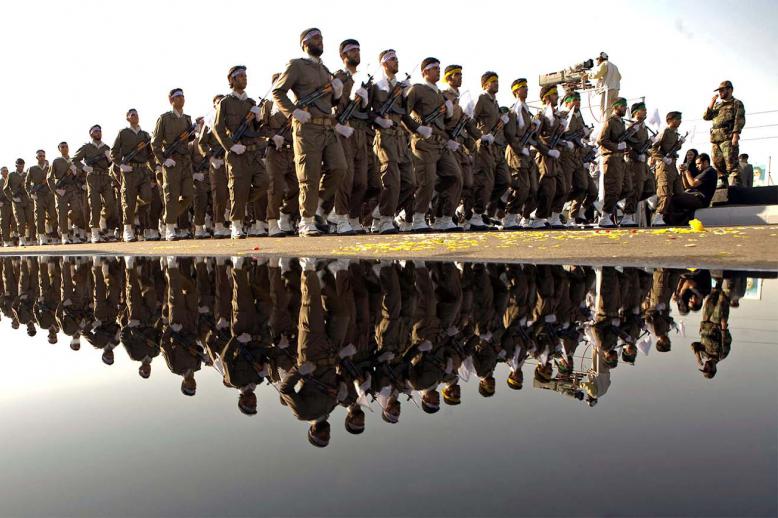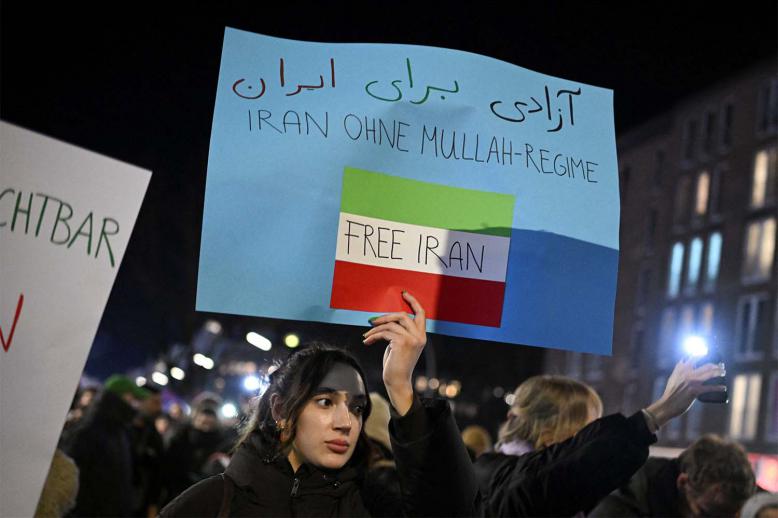Trump and Erdogan: An odd couple glued together by calculations
Nothing, it seems, will break the bond between US President Donald Trump and Turkish President Recep Tayyip Erdogan.
Regardless of how tense the relations have become between the two countries, some argue a mysterious glue keeps the two together, meaning, perhaps, that they have cast their lot with each other.
Neither Erdogan’s challenge to NATO by purchasing Russian S-400 missiles, his soon-to-materialise interest in Su-35 Russian jets nor the Turkish incursion into Syria has led Trump to block Erdogan’s planned visit to Washington
In such circumstances, a meeting between the leader of the world’s sole superpower and the head of an increasingly cranky and troublemaking ally — when as wisely put by French President Emmanuel Macron, NATO seems to be experiencing “brain death” — is telling more than enough how quickly and deeply realpolitik has become a global norm.
There is not a single state on the world stage — except Qatar, a hesitant Azerbaijan and a silently calculating Russia — that approves of the behavioural pattern of Erdogan who, without a blink, cements his iron rule, violently confronting the Kurds at home and across Turkey’s borders and planning a long-term stay in Syria. There is no doubt he benefits from the diplomatic havoc that shatters the DNA of the West.
Many wonder then that Erdogan has not cancelled or postponed his visit to Washington when the overwhelming majority of the US Congress opposes it strongly. The US House of Representatives passed two resolutions after the Turkish incursion — one acknowledging the Armenian genocide, the other recommending a large scale of sanctions against Erdogan’s government. In periods of normality earlier, each act of this kind would have scaled down relations, called back the Turkish ambassador for “consultations” from the United States and even asked US diplomats to leave.
Yet, Erdogan, after a cunning assessment, did just the opposite. It seems he was the one insisting on visiting Washington and for Trump, under the immense pressure of an impeachment inquiry, it was a go ahead. Puzzling indeed.
For Erdogan, one cannot speak of embarrassment. The Turkish incursion was a significant victory at home. He gambled and he surged on the military operation. He knew the weak opposition bloc, consisting of a confused main opposition party, the Republican People’s Party (CHP), and all others at the nationalist and conservative ground would be unable to challenge his decision because Erdogan knew of the dormant nationalist frenzy in large segments of Turkish society.
A survey in Ankara by Turkiye Raporu indicated massive support for the incursion across party blocs. That 97.6% of respondents from Erdogan’s Justice and Development Party would give their backing didn’t come as a surprise. Also unsurprising were the voters of the Nationalist Movement Party, the minor partner of Erdogan’s rule, whose support was more or less on the same level. Additionally, more than one-third of respondents who voted for the secular CHP voiced support for Erdogan’s move.
Assembled together, the pro-war sentiments articulated into nearly 85% support.
Such frenzy alienates Turkey’s Kurds further. Obsessed with consolidating his power after the defeat in last spring’s local elections, Erdogan couldn’t care less. He raised the stakes and won a huge public relations victory. As he insists on visiting the White House, this consideration is a major factor that will keep Erdogan from blinking.
What is next? Erdogan knows Trump is the one and only person he can do business with but, what business?
There will be, most likely, three items on the agenda. Erdogan remains obsessed with the notorious Halkbank money-laundering case in federal court in New York, that threatens to place him and his ministers in breach of the Iran embargo. Erdogan, who managed to evaporate the case at home, will nag Trump to do the same or, at least, try to cut a deal, through a hard bargain (releasing some detained US Embassy staff from prison), involving some bluffs and carrots, such as new trade contracts.
Second, he will ask Trump to cease support to the Syrian Kurdish militia. Third, he will ask for a free trade agreement, even if it doesn’t look likely to be accomplished for some time.
Erdogan keeping his own path remains consistent but how about Trump? What is in it for him? This is the question that is the major part of the puzzle.
Keeping close to a globally resented strongman places Trump in an awkward position because there is no reason he will increase his approval ratings by being associated with Erdogan. His de facto support of the Turkish incursion has convinced neither Congress nor his evangelical voter base, the latter remaining sympathetic to the Syrian Kurds. Then there are rumours on whether Erdogan has some compromising material to steer Trump his own way.
The question of Trump’s special relationship with Erdogan needs to be addressed. Perhaps the White House meeting will answer this question.
Yavuz Baydar is a senior Turkish columnist, and news analyst. A founding member of the Platform for Independent Journalism (P24) in Istanbul, he has been reporting on Turkey and monitoring media issues since 1980. A European Press Prize Laureate in 2014, he is also the winner of Germany's 'Journalistenpreis' in 2018.
Copyright ©2019 The Arab Weekly







